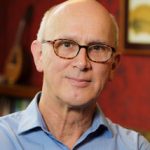
As one might surmise from its name, Christian Book Distributors distributes Christian books, which, given the current usage, means it distributes Protestant books. The latest catalogue features The Church Comes Home by Robert and Julia Banks. The accompanying blurb is unintentionally instructive: “Home churches are as old as the New Testament, and now the Banks[es] help you carry on the tradition in your community of faith! Discover how to start a home church of your own, determine doctrine, form a network with other home churches, and more!”
“Determine doctrine”? Isn’t that the essence of every offshoot from the one Church of Christ?
Martin Luther determined that there is no purgatory (good-bye Maccabees!) and that works play no role in salvation. John Calvin determined that God creates most men precisely to send them to hell. Charles Taze Russell determined that there is no hell and that you’ll go there if you don’t worship at Kingdom Hall. Joseph Smith determined that any man can become a god and can populate his own universe. Mary Baker Eddy determined that death is a figment of the imagination, and then she died. Ellen Gould White determined that the Mother Church is really the Whore of Babylon.
What business did these people have in determining Christian doctrine? None, of course. Not a single one was competent to do so, as they so amply demonstrated. With one or two exceptions, each was a sincere believer, sincerely believing some things that just weren’t so. Luther and Calvin, at least, were fairly well educated, yet they were unable to determine doctrine accurately, having, like the rest of us, reasoning faculties that were impaired at the Fall.
No one, no matter how bright, no matter how sincere, can expect to determine doctrine accurately on his own. Sure, anyone can get one or two things right, by dumb luck if nothing else. But to get the whole corpus of religious truth right? No one has done it—on his own. Only the magisterium of the Church—the bishops teaching in union with the pope—has been able to do it, but not because we’ve been blessed with bright bishops and popes. (Some bishops and popes have been dim bulbs indeed.) The men who, in their ordained lives, make up the magisterium are able to teach rightly not because of any native skills they have, but because the Holy Spirit prevents them from making a botch of it. When a pope speaks ex cathedra, or when the pope and bishops convene in an ecumenical council, what we get is teaching guaranteed to be correct because the deliberations are protected by the Holy Spirit.
We call this infallibility. It is a charism that doesn’t belong to a bishop teaching on his own, to a pope teaching other than ex cathedra, to any priest, religious, or layman in the Catholic Church, and definitely not to anyone outside the Catholic Church, including folks establishing home churches.


